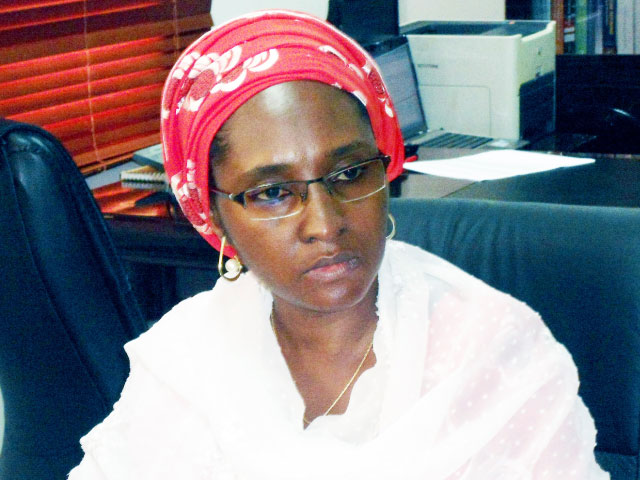- Adeosun Resignation: Ahmed Resumes at Finance Ministry
The Supervising Minister of Finance, Mrs Zainab Ahmed, on Monday formally assumed duties at the headquarters of the ministry in Abuja.
Ahmed said she would bring her knowledge to bear to overcome the economic challenges facing the country.
This, she noted, would be achieved through the support of the Permanent Secretary, Dr Mahmoud Isa-Dutse, and the directors of the ministry.
Shortly after her resumption, Ahmed had a meeting with all the directors in the ministry.
Speaking at the opening session of the meeting, she said, “The finance ministry has overtime been known to have very skilled personnel. From interacting with some of you, I know that there is a lot of skill set within the ministry and that I am in good hands.
“I plan to work very closely with the whole of the directors, most especially with the permanent secretary. I want to declare that today, the permanent secretary is my new next-of-kin. What that means is that I am going to work hand-in-gloves with him, and I expect everybody to do the same thing.”
Ahmed added, “There are some things I know about finance, but there is a lot that I don’t know; and the knowledge resides in you.
“I have been told that you are preparing handing-over notes, or more correctly, briefing notes; I will be engaging each of you on a one-on-one basis with the permanent secretary, so that I can have a complete view of what is in the ministry.”
She said the economy was going through a very challenging time, adding that as a key ministry under the economic team, there was a need for officials of the ministry to work harder to enable the country to surmount the challenges
She noted that revenue generation had always been an issue for the government, adding that now was the time to come up with workable solutions towards addressing the revenue challenge.
The minister stated, “These are very challenging times for our country. It means we are part of the economic team that has been charged with making sure that there is economic stability in our country.
“We have very serious revenue challenges and it is up to us to shore up the revenues of this country. Mr President has a lot of confidence that we can do this very well together. We are working for Mr President, but at the end of the day, we are working for the benefit of the citizens of our country.
“There are a lot of sacrifices that I know that you have made, and we are going to push ourselves to still do more so that at the end of the day, we will say glory be to God.”
Earlier, Isa-Dutse had assured the minister of the readiness of the management and staff of the ministry to give her the needed support in the discharge of her duties.
Until her new role, Ahmed was the Minister of State for Budget and National Planning.
She was directed to oversee the finance ministry by President Muhammadu Buhari following the resignation of Mrs Kemi Adeosun on Friday.
Ahmed is a Fellow of the Association of National Accountants of Nigeria, a member of the Nigerian Institute of Taxation and the Nigerian Institute of Management.


 Naira4 weeks ago
Naira4 weeks ago
 News4 weeks ago
News4 weeks ago
 Naira4 weeks ago
Naira4 weeks ago
 Travel3 weeks ago
Travel3 weeks ago
 Jobs4 weeks ago
Jobs4 weeks ago
 Naira3 weeks ago
Naira3 weeks ago
 Naira3 weeks ago
Naira3 weeks ago
 Investment4 weeks ago
Investment4 weeks ago





























